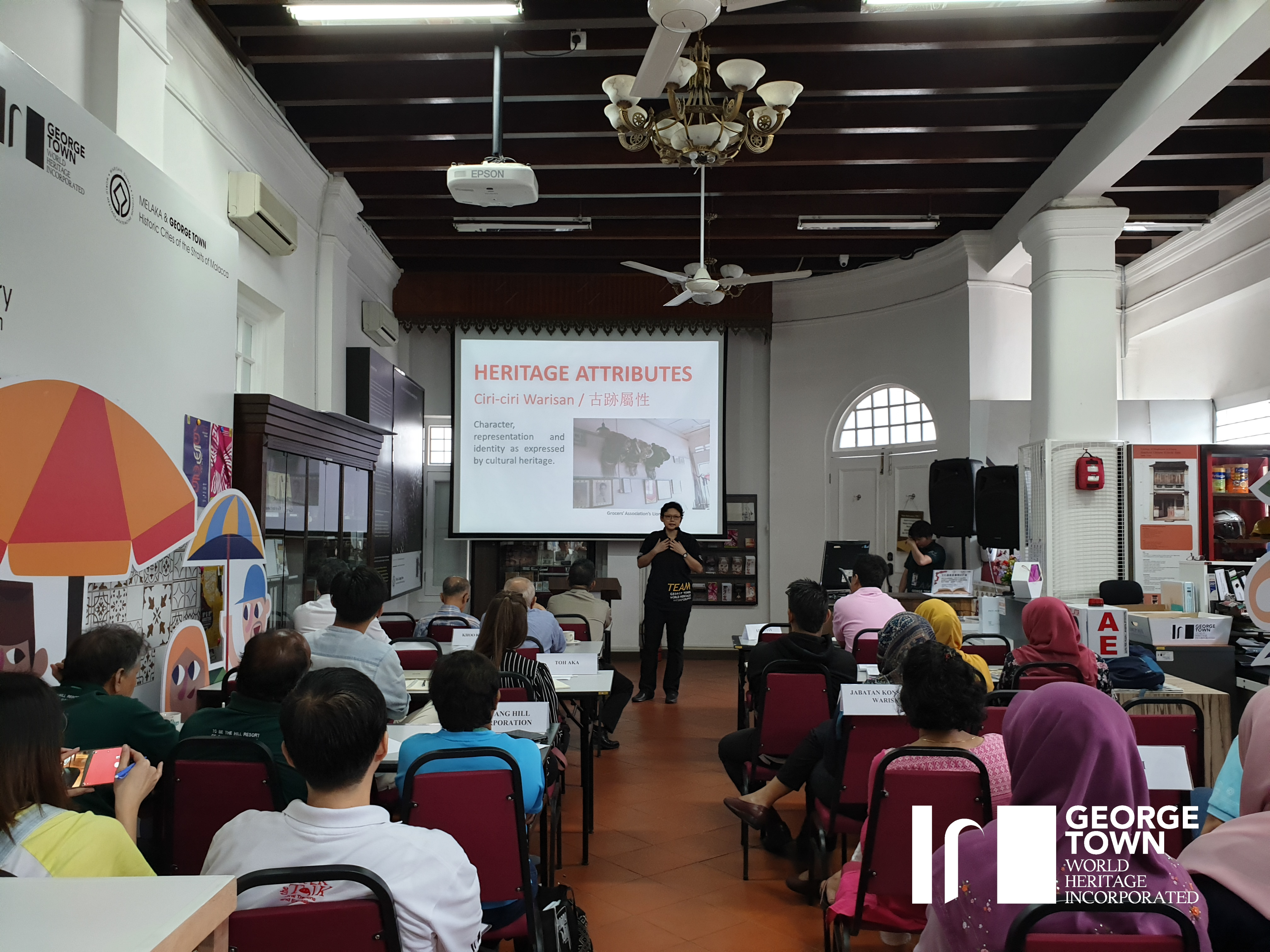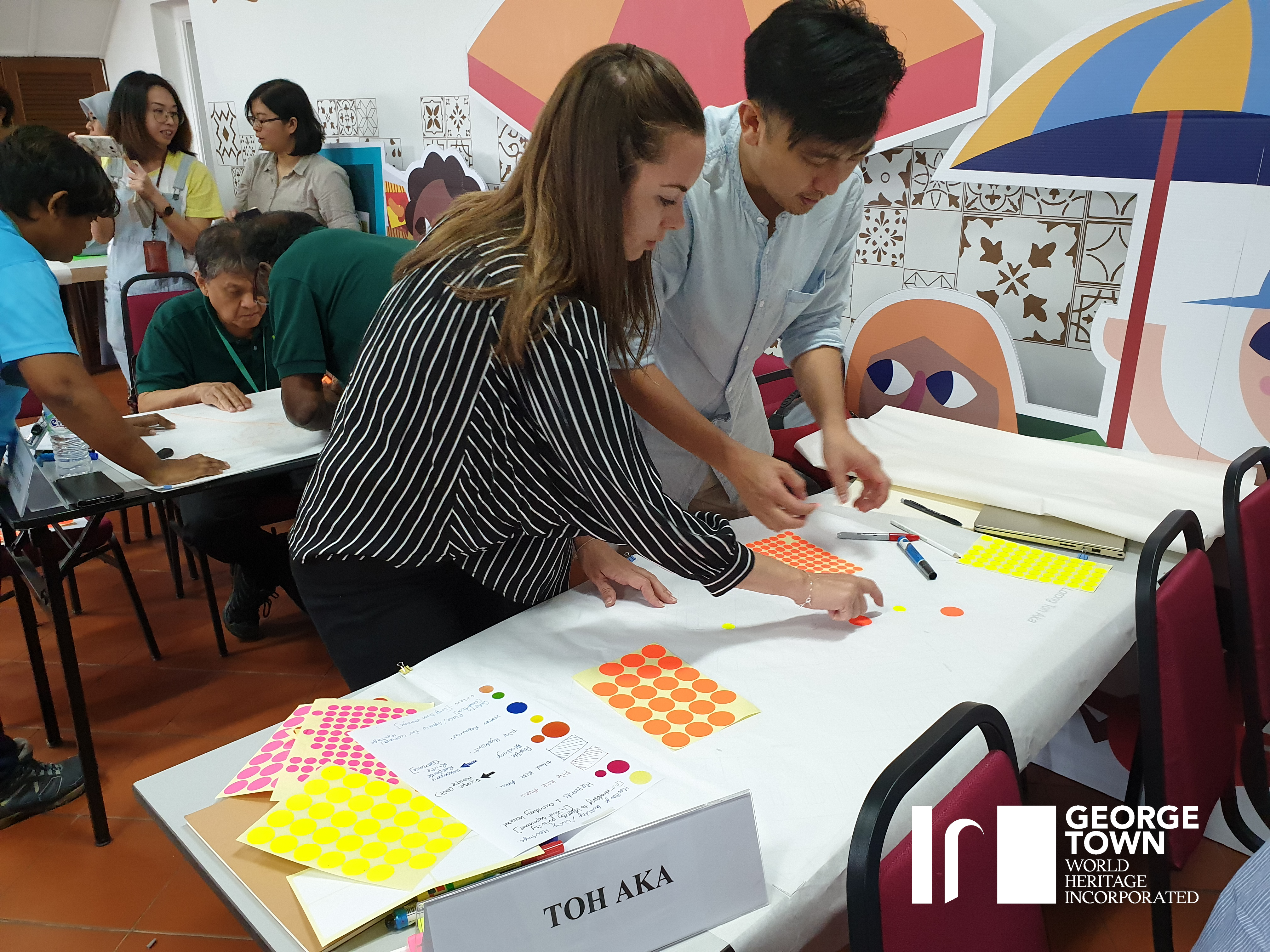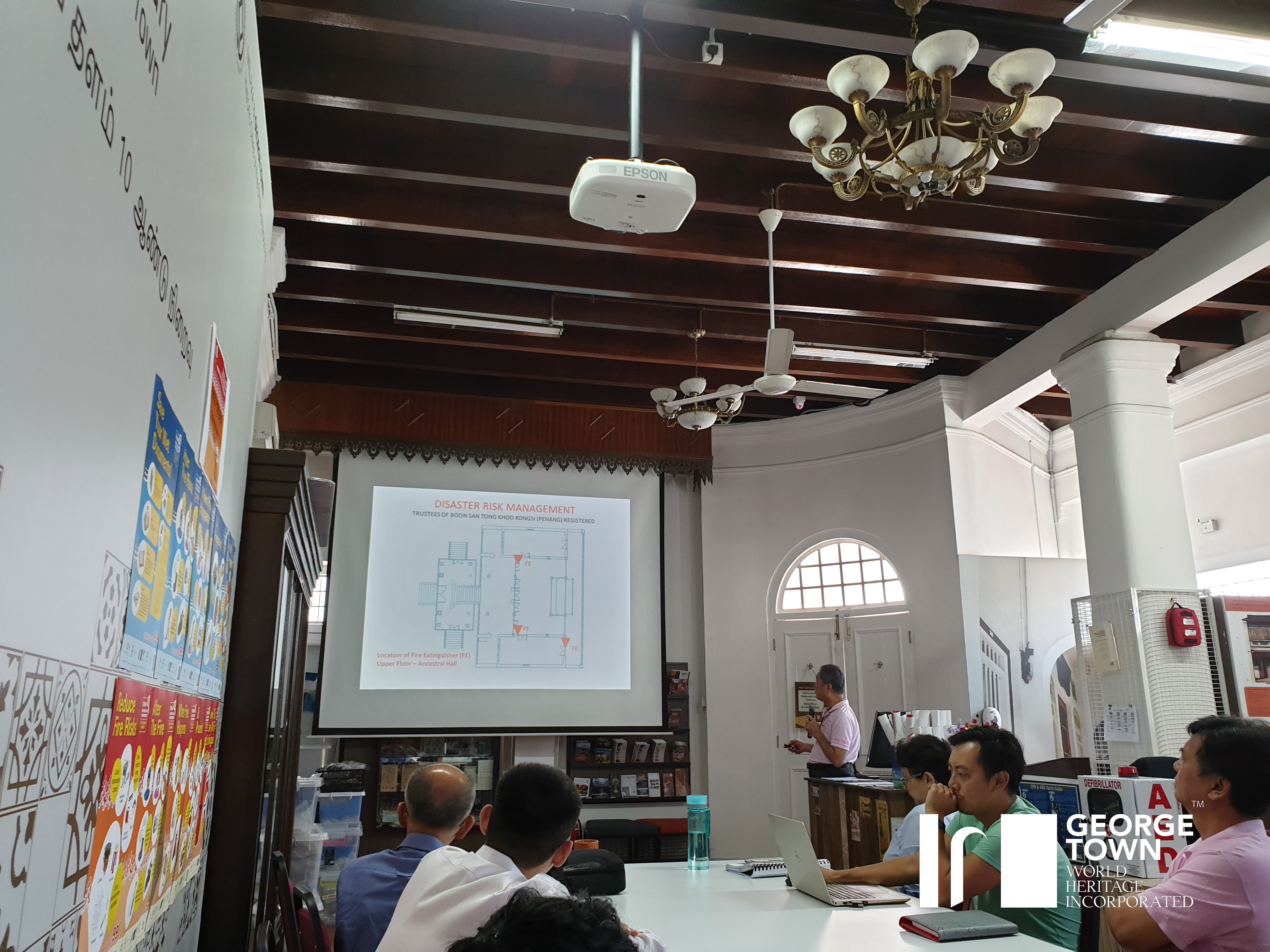



El GTWHI ha organizado talleres comunitarios y campañas de concienciación sobre reducción y gestión del riesgo de catástrofes para las comunidades locales. Representantes de las comunidades locales (tanto cuidadores de edificios patrimoniales como residentes) asistieron a las sesiones de formación para identificar riesgos, debatir medidas preventivas y desarrollar acciones de emergencia. Estas sesiones mejoraron la comprensión de las comunidades locales sobre la preparación ante los desastres, permitiéndoles identificar los peligros, evaluar las vulnerabilidades y los posibles factores, así como reducir los impactos potenciales de los desastres en el sitio.
Los talleres se estructuraron de la siguiente manera
- Introducción de conceptos clave con ejemplos, cartografía del lugar y juegos de imaginación.
- Los participantes compartieron escenarios de catástrofes y propusieron medidas de mitigación para las personas y el patrimonio, redactando estrategias de respuesta ante emergencias.
- Los participantes detallaron el análisis de riesgos e identificaron a los posibles actores y sus funciones antes, durante y después de una catástrofe.
- Los participantes presentaron sus casos prácticos con un plan operativo estándar para el antes, el durante y el después de una catástrofe.
- Los participantes presentaron sus casos en el Taller de Intercambio de Experiencias sobre Estrategia de RRD para Ciudades Patrimonio en el Sudeste Asiático, el Pacífico y África.
GTWHI organizó varios talleres de 2 horas a lo largo de 7 meses, con un desarrollo de capacidades gradual y progresivo para introducir los conceptos de RRD en las comunidades locales.
El desarrollo de capacidades y la concienciación son fundamentales para la ejecución de una capacitación sostenible basada en la comunidad. En particular, la participación continua y significativa de las comunidades locales en la prevención, planificación y gestión del riesgo de catástrofes es fundamental para los resultados del proyecto.
Por ello, todas las actividades de desarrollo de capacidades se llevan a cabo utilizando un idioma con el que la comunidad local se sienta más cómoda, y las sesiones se imparten en el momento en que están disponibles (evitando los periodos de trabajo ajetreados y/o los horarios durante el día).
GTWHI se alejó de los estilos de formación de talleres académicos-compactos orientados a la jerga y ejecutó talleres de varios días que utilizan términos y ejemplos relacionables y receptivos. GTWHI proporcionó asistencia técnica a los participantes antes, durante y después de sus presentaciones, y ofreció a los participantes oportunidades y plataformas para compartir sus estrategias con la UNESCO, así como con organismos internacionales y nacionales (por ejemplo, el Departamento de Bomberos y Rescate de Malasia).